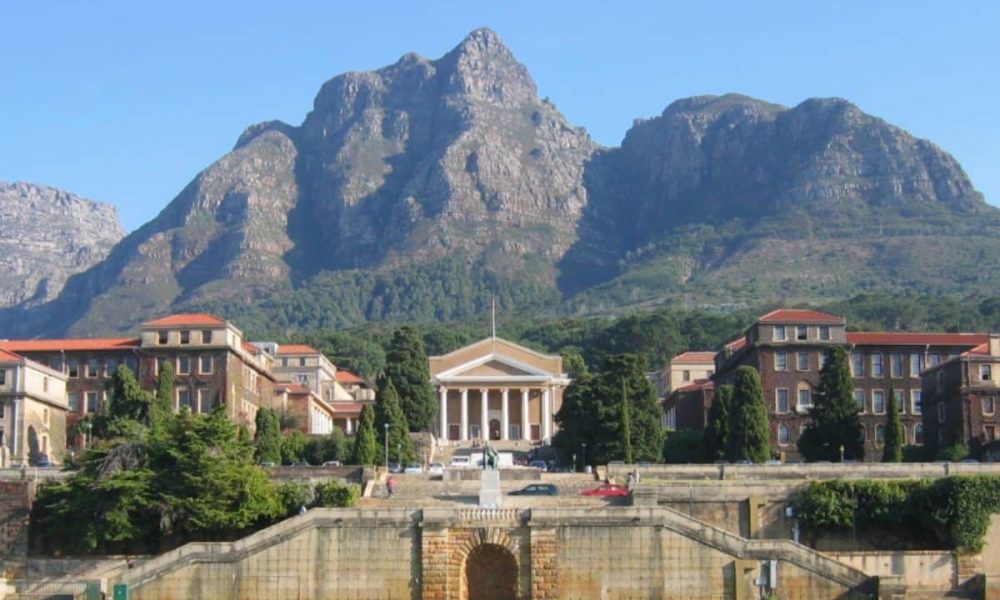Banner
Storm over inclusion of Israel-boycott academic at conference

The Kaplan Centre for Jewish Studies at the University of Cape Town (UCT) has defended its decision to include an academic who supported the academic boycott of Israeli institutions at UCT in an upcoming conference.
This follows a strongly worded petition criticising the Kaplan Centre for its decision by a group calling itself Concerned Citizens for Academic Freedom at UCT.
The petition, released on Tuesday this week, has called on the Kaplan Centre to explain why it has included Jewish UWC academic Mitchel Hunter in the conference taking place later this month.
He will be on a panel alongside University of the Witwatersrand academic and member of the South African Jewish Board of Deputies, Professor Karen Milner; Gavin Morris from the South African Jewish Museum; and Tali Nates from the Johannesburg Holocaust & Genocide Centre. They are to discuss “Jewish History in SA Public Life”.
The international conference titled, “Jews in South Africa: New Directions in Research” is being hosted by the University College of London Institute of Jewish Studies in partnership with the Kaplan Centre. The conference will include discussions based on pre-circulated academic papers.
The petition states, “Astonishingly, the convenors have chosen to place a leading proponent of the Israeli academic boycott at UCT, who is also a member of the antisemitic Boycott, Divestment, Sanctions (BDS) movement, as a speaker on one of the panels.”
Rowan Polovin of the South African Zionist Federation believes the Kaplan Centre’s decision to include the academic is wrong. “The South African Zionist Federation is appalled that a well-respected Jewish institution would deliberately host someone who actively promotes institutional antisemitism by calling for the unique sanction and discrimination of the Jewish state at UCT,” Polovin said.
Adam Mendelsohn, the director of the Kaplan Centre and associate professor of history at UCT, said the centre stood by its decision. “Although I don’t dispute the right of anyone with a grievance to launch a petition, there’s a certain irony in this one. Last year, these same petitioners appealed to UCT not to infringe on academic freedom by instituting a boycott of Israeli academic institutions. This year, they in effect propose the opposite, that an academic research centre at the University of Cape Town change the programme of an academic conference because they disapprove of the political views of one of the speakers.”
He said the Kaplan Centre had organised the conference in collaboration with the UCL Institute of Jewish Studies, and that the scholars participating responded to an open call for papers and submitted proposals describing the research they planned to present.
“These proposals were vetted by conference organisers who paid particular attention to the scholarly rigour of the proposals, as well as to indications that the research would contribute to advancing the study of Jews in South Africa,” said Mendelsohn.
“We didn’t inquire as to the political views of the presenters, nor would we do so. Purity tests are matters for an inquisition, not for a serious academic institution built on the premise that rigorous research, vigorous debate, and academic freedom are essential. We stand by our decision.”
Milton Shain, the emeritus professor of historical studies at UCT and a former director of the Kaplan Centre, told the SA Jewish Report that conference organisers called for papers a long time ago.
“Anyone working in the field of South African Jewry was alerted. I haven’t had a hand in the organisation, but I’m sure that – as is the case with academic conferences generally – the organisers looked at the merits of the proposal and most importantly, considered its appropriateness for the conference theme,” says Shain.
“It would be outrageous for one’s political beliefs to be a consideration at a university. That’s precisely why the Kaplan Centre has fought against those who call for a boycott of Israeli academics at UCT. How could that battle be fought if the Kaplan Centre did its own censoring?” he asked.
The petition said if Hunter “got his way” and an Israeli academic boycott were to be adopted at UCT, then the Kaplan Centre would be unable to fulfil its mandate as a centre for Jewish Studies, nor would it be able to host this international conference with participating Israelis.
David Kaplan of the Concerned Citizens for Academic Freedom said in the petition, “We are thus puzzled as to why the Kaplan Centre would deem it appropriate to legitimise radical individuals with extremist positions that harm UCT and the pursuit of academic freedom. Placing a well-known BDS activist at an academic conference undermines the credibility of the conference and the important discussions set to take place.”
Hunter, who wasn’t aware of the petition until being informed by the SA Jewish Reportsaid, “I’m looking forward to an academically rigorous and inspiring conference, and to share some of the findings from my masters research into South African Jewish history.”